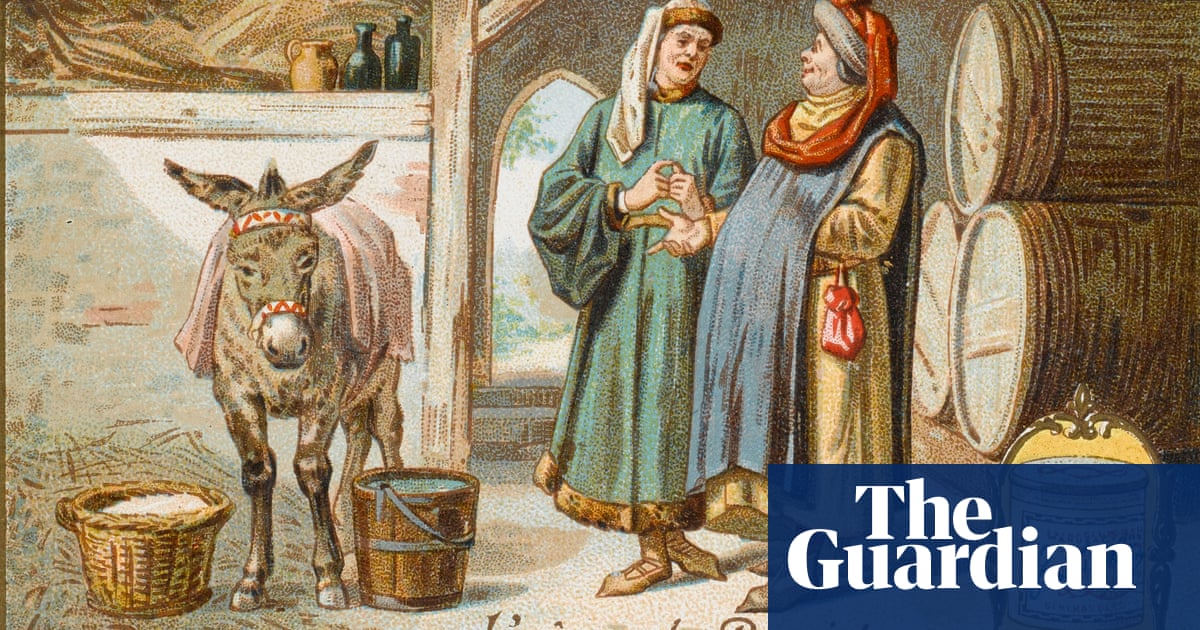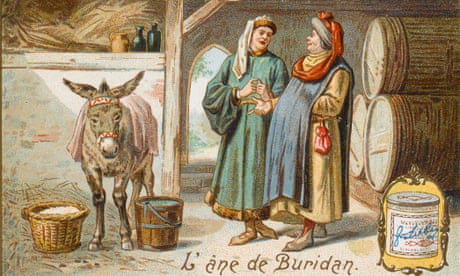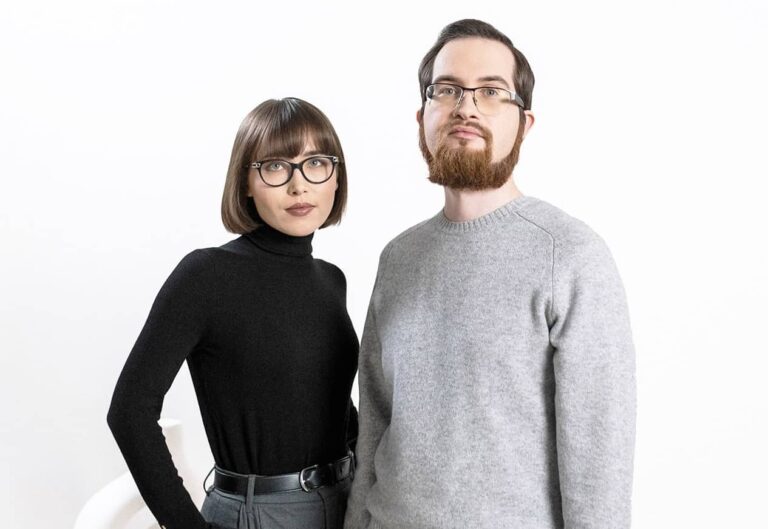
I hope this sets you free like it did me. Just pick a bucket, any bucket. You’ll be waiting on the other side of the decision ready to be amazed at how malleable and authoritative you really are – whether your choice was a good one will turn out to be up to you.
I think what I find so paralysing is the sense that there is a correct, happiness-guaranteeing choice here, if only I could figure out which one it is. It’s like a cruel game show: “We’ve marked three doors with the names of competing universities. Behind one lies blissful happiness … behind another, total ruin! With no further information – Choose! Your! Door!”
Eleanor says: Parable: donkey gets tied to a pole. Two buckets are nearby, each equidistant from the pole. One contains water, the other hay. The donkey is equally hungry and thirsty, so there’s no principled reason to prefer one. Donkey wants to be rational; wants to make the choice best supported by reasons. So he stands by his pole trying to carefully think through which bucket would be better to approach first, and in this manner, dies before deciding.
I’m like you – donkey-like in my decision making. It’s maddening. Sometimes when I’m on day three of pro and con lists I wonder what’s supposed to be at stake here – what will I prove to myself by getting this decision as right as possible?
How do I overcome chronic indecision and make progress with my life? Important decisions which usually involve either a time commitment or considerable investment evoke feelings of anxiety and a fear that I will make the wrong choice. I will often ruminate over the pros and cons of these decisions to such an extent that I can no longer choose between them – a state of analysis paralysis.
All kinds of decisions are like this; you study something on a lark and find you love learning what you thought was boring; you move somewhere you think is stifling and later find you can’t imagine leaving. There’s no point in trying to think these decisions through in advance with rigorous lists of pros and cons, because the person we become by making the decision might turn out to count different things as “pros” or “cons”. We make choices for our future selves, but our choices make our future selves.
If you’re having trouble using the form, click here. Read terms of service here
Two thoughts finally liberated me. One is that no door will deliver you to a life without pain and disappointment. There just are going to be heartbreaks and irritations and days when the fog sets in – for me, this makes the stakes feel a little lower.
At instances when I have had more than one choice, such as two study offers from different universities, or two different job opportunities, I am frustratingly fraught with indecision. On occasions, I have overthought for so long that I have often lost both opportunities which then stirs up strong feelings of regret and self-loathing. This inaction has stalled my progress in life, which seems bizarre, as all I want to do is just move forward with things.
The second thought comes from Yale professor Laurie Paul. You can’t know in advance which door is the correct one to walk through, because which one feels correct later on will depend on the choice you make now. This is a funny loop-the-loop of a thought but I think it’s broadly right. Say you choose the job that pays more, but will make you travel more. Because you chose that job, you’ll travel a lot – while travelling, you might realise you love it, and in two years you might find you can’t remember what it was like to think of travel as a chore. You’ll count that decision as one of the best you ever made, but not for reasons you could have foreseen when you made it.
Ask us a question
I don’t know how to overcome this chronic indecisiveness or where it has stemmed from, if I consider events in my childhood. Would putting my eggs just in one basket and not giving myself a choice be a solution? I’m worried that without addressing this, it could start to affect making more decisions in the long run.
Do you have a conflict, crossroads or dilemma you need help with? Eleanor Gordon-Smith will help you think through life’s questions and puzzles, big and small. Questions can be anonymous.




